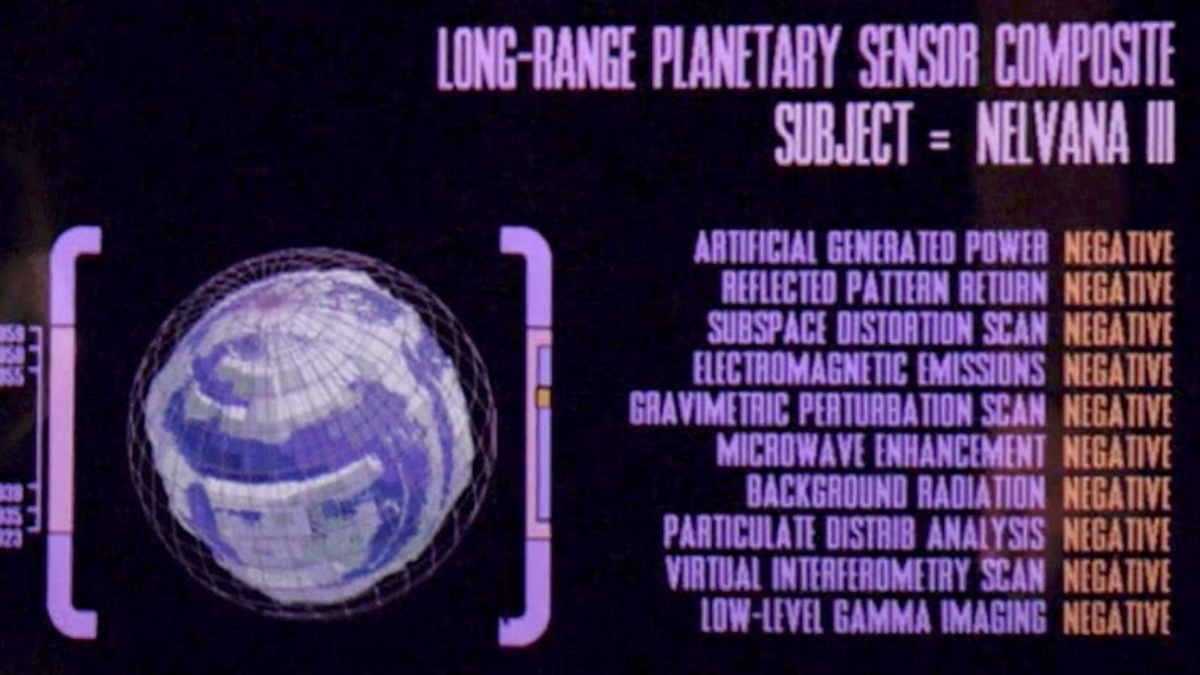Scientists Demonstrate Star Trek-like Scanner that can Detect Life from a Distance

A long-range planetary scan as seen in Star Trek
A team of scientists in The Netherlands have carried out field demonstrations for a Star Trek-like device that might be capable of scanning large areas for signs of life.
An article in The Times highlights the work of researchers at Leiden University, who have developed a device called Treepol. This device, as The Times describes it, is “a type of electronic sensor known as a circular spectropolarimeter that analyses how light interacts with molecules and determines from a distance whether they are organic.”
The team tested the device from the roof of Leiden University, where they found that it successfully detected trees, and failed to detect artificial grass - because of course, it was artificial. They’re now moving on to instruments that might be placed on aircraft or the International Space Station, in order to test their effectiveness at detecting life forms at altitude.
The Times piece notes that the Leiden University team believes that Treepol could potentially be used to find out whether life exists on exoplanets, like those discovered by NASA’s Kepler space telescope. Kepler discovered more than 2,600 exoplanets in its lifetime, and up to half of them are believed to be conducive to life.
The Leiden University team’s findings were published in the scientific journal Astrobiology.






